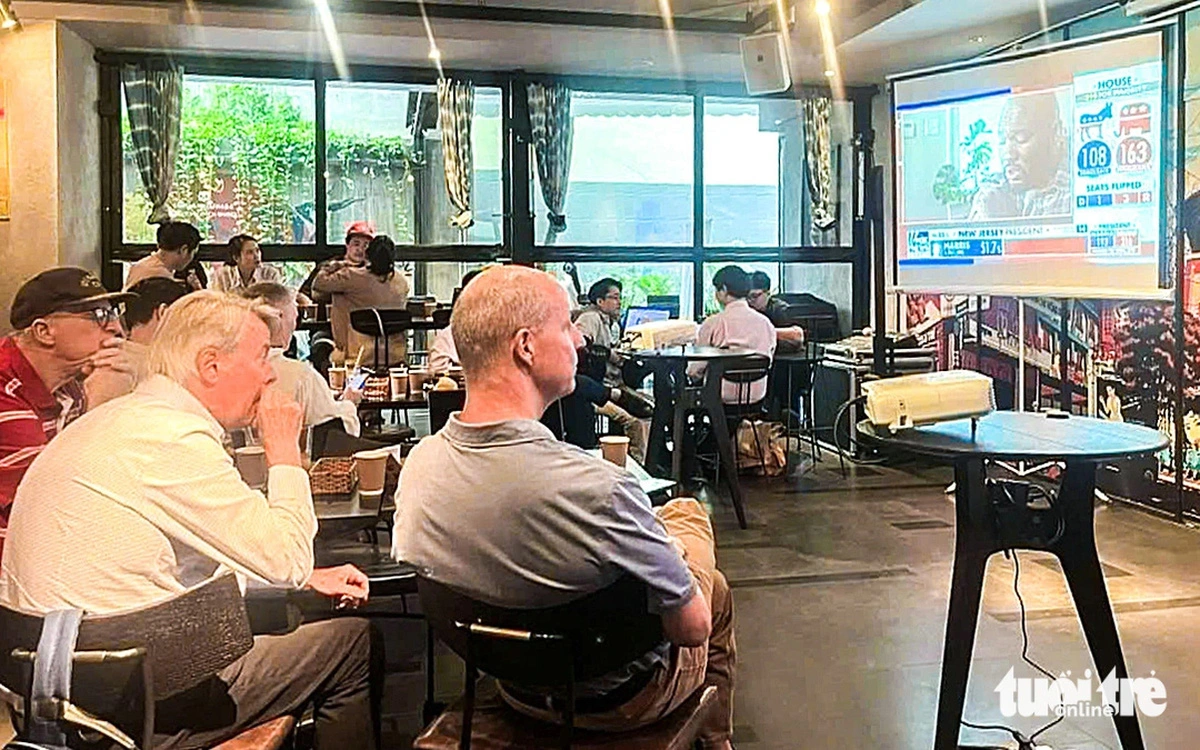Fred Burke, lawyer and senior advisor at American law firm Baker McKenzie in Vietnam, has warned Vietnamese enterprises to avoid being assessed as intermediaries for Chinese exports as calculated protection once Donald Trump takes office.
Burke spoke with Tuoi Tre (Youth) newspaper, agreeing with other experts who were evaluating the future of Vietnam’s trade relations with the U.S. on Wednesday.
It is the unanimous decision that trade between the two nations will develop further regardless of the winner of the election.
However, as Donald Trump has won the presidency, he will lead potentially big changes in U.S. trading policies, including new tax schemes.
Burke said Trump received strong support during his campaign, pushing his proposals, including higher tariffs on products from countries with a high trade surplus with the U.S..
Vietnam has maintained a multilateral and equitable foreign policy, especially in trade and investment, focusing on helping the country further access the U.S. market without causing trade conflicts.
Hanoi's efforts will help deal with important issues, including Washington's denial of Vietnam’s market economy status and the missing bilateral tax agreement between the sides.
The lawyer advised Vietnamese exporters to closely monitor U.S. pricing policies to avoid violating anti-dumping regulations and trading in products subject to trade remedies.
Former Vietnamese Ambassador to the U.S. Pham Quang Vinh also agreed that Trump always attaches much importance to trade deficits, and would concentrate on the origin of products.
Vinh noted that trade exchange activities are measures to reduce risks for Vietnam.
Deborah Elms, head of trade policy at the Hinrich Foundation, told Tuoi Tre that Trump’s first term from 2017 to 2021 reshaped the economic landscape, with the U.S., under both parties, now placing a much stronger focus on domestic issues and showing less concern for external interests.
“The challenges for ASEAN in Trump 2.0 are much, much greater than either Trump 1.0 or Harris," said Elms.
"Trump cares about trade more than almost any other subject and can be counted on to implement most of what he says.”
She added that Trump sees tariffs as the single most valuable tool in the toolkit and can be used for all kinds of issues.
“He does not care about the collateral damage that they may cause and he’s not wielding this tool because he wants to make a deal,” she explained.
A deal is fine if he can capture significant benefits that are immediately visible, the expert claimed, adding that he is mostly interested in showing U.S. power and getting personal credit for doing so.
“He’s coming into office this time with a much different team surrounding him as well," Elms said.
"He thinks he didn’t get what he wanted last time because his people were insufficiently loyal and too prone to stopping him.
“This will not be true this time around.
"So expect him to do what he wants with very, very few limits.”
President-elect Trump only cares about trade in goods, which is where the real problem lies for ASEAN, where he and his team will be laser-focused on what happens.
The single most important metric for success is the size of the bilateral trade in goods deficit, or surplus.
This is a problem for ASEAN and especially for places like Vietnam where the goods trade is significantly against the U.S..
Vietnam sells a lot more to the U.S. than it buys from the States, Elms said.
On Wednesday, U.S. media predicted that Republican Donald Trump claimed victory in the 2024 presidential election after defeating Democrat Kamala Harris.
Harris later acknowledged President-elect Trump's win, saying she had called him, congratulated him on his triumph in Tuesday's election, and promised to engage in a peaceful transfer of power, Reuters reported.
The United States was Vietnam’s largest export market from January to October this year, with the Southeast Asian country's export revenue reaching US$98.4 billion, according to the Vietnamese General Statistics Office.
Vietnam recorded a trade surplus of $86.1 billion with the U.S. in the 10 months, up 26.9 percent year on year.
Like us on Facebook or follow us on Twitter to get the latest news about Vietnam!


















































